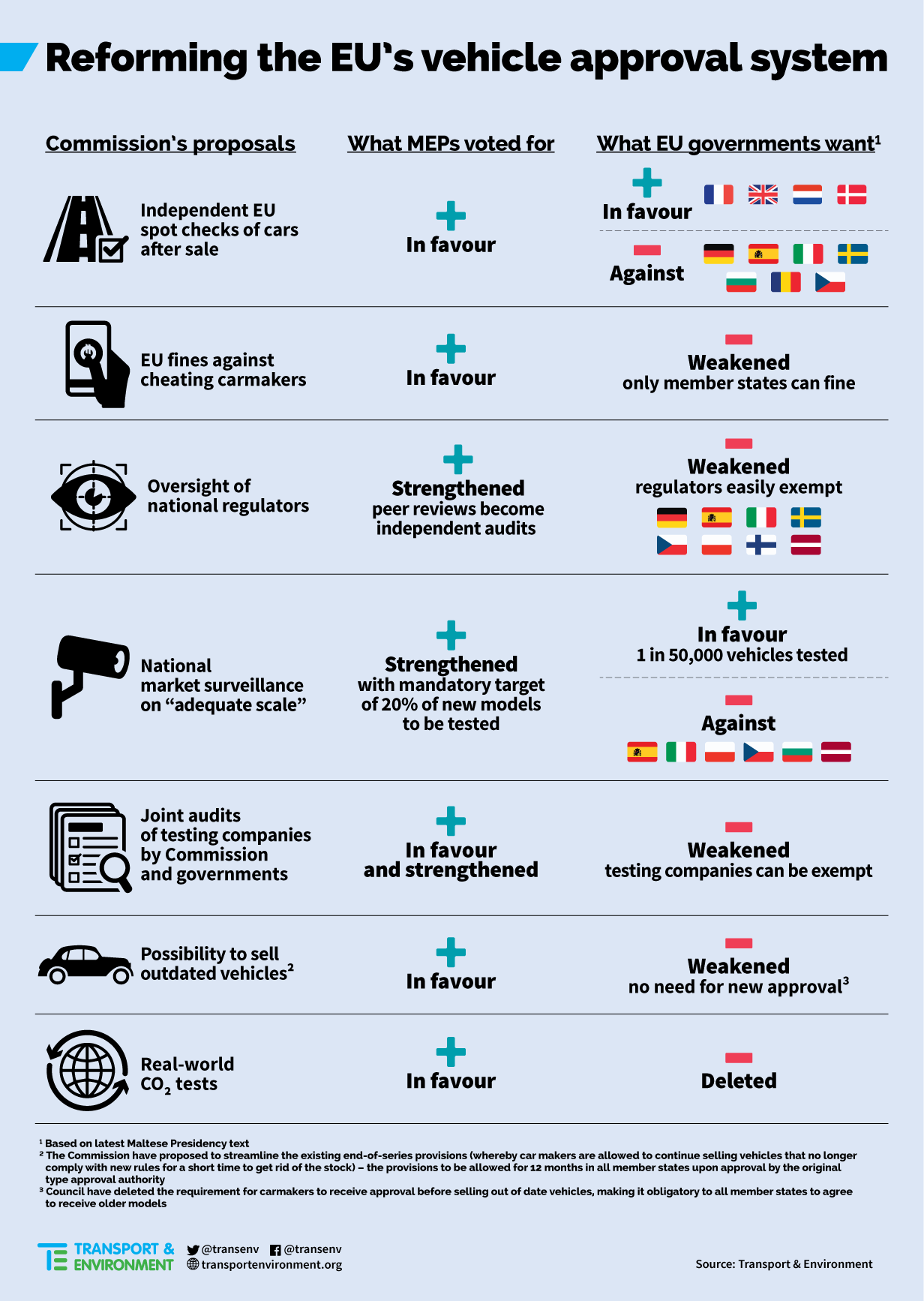
Interested in this kind of news?
Receive them directly in your inbox. Delivered once a week.
The same three, together with Poland, Bulgaria, the Czech Republic, are among the governments blocking: checks on national testing regulators to ensure they perform their work properly; and clear obligations for regulators to carry out after-sale checks on vehicles. Government officials will meet this week (26-27 April) in what is expected to be one of the last attempts to agree a Council position on type approval reform.
Only France, the UK, the Netherlands and Denmark support meaningful reform of the system of approving cars for sale that has been utterly discredited by the Dieselgate emissions scandal. A compromise proposed by the EU presidency allows vehicle tests by the Commission and sets a target for how many cars should be tested after they have been sold. However, the draft compromise lets national regulators off the hook by suggesting authorities should be allowed to check one another’s work – and even then only in limited cases – rather than face inspections by independent auditors.
Julia Poliscanova, clean vehicles and air quality manager at T&E, said: “Governments brazenly behave as if Dieselgate never happened by trying to weaken EU checks on vehicles and the national regulators that are at the heart of the current emissions problems in Europe. Countries such as Germany, Italy and Spain object to effective, independent oversight of their work despite overwhelming evidence that they allowed the Dieselgate scandal to happen by failing to adequately check that cars meet the emissions rules.”
Earlier this month the European Parliament voted to strengthen type approval after its Dieselgate inquiry (EMIS) highlighted national regulators’ failure to enforce existing defeat device rules and check cars rigorously. The result of this failure is 29 million dirty diesel cars and vans driving on Europe’s roads today. Volkswagen’s cheating and, more recently, Fiat’s special treatment are the tip of the iceberg to which national authorities continue to turn a blind eye, even after the revelations.
Julia Poliscanova concluded: “Only strong controls of both cars and testing authorities at EU level can finally bring compliance on the road and avoid thousands of premature deaths from toxic nitrogen dioxide fumes largely spewed out by diesel traffic. In their upcoming meetings EU governments should follow the European Parliament and support reforms that will ensure cars actually comply with air pollution limits.”
More than 70,000 Europeans die prematurely each year from high levels of nitrogen dioxide in cities, according to the European Environment Agency. Carmakers could have prevented many of these deaths by complying with Euro 5 and 6 rules properly.
Read more:
T&E briefing: Council opposes strengthening of vehicle testing reform


